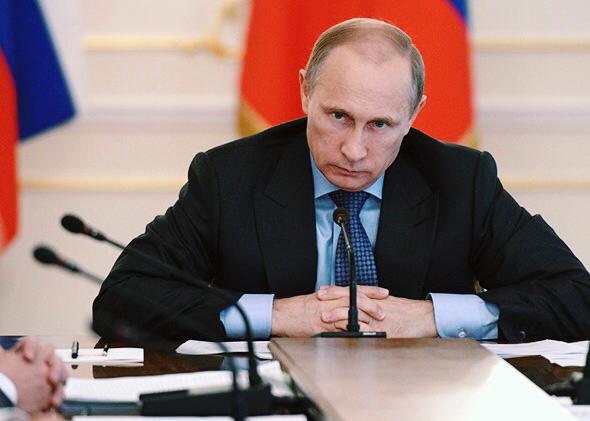Russia’s offer to sell advanced air-defense missiles to Iran is regrettable and craven, but far from undermining the nuclear talks with Iran, as some Republican senators claim, the move bolsters the case for completing and signing a deal as soon as possible.
Iran contracted to buy these missiles, known as S-300s, back in 2010, but on the eve of delivery, then–Russian President Dmitry Medvedev canceled the contract and refunded the money ($800 million worth), which Iran had paid up front. Medvedev took this step, at financial sacrifice and political risk, as part of the “reset” in Russian-American relations (which reaped great benefits, briefly, until Vladimir Putin returned to the helm).
Had the sale gone through, it would have altered the balance of power between Iran and the U.S.-Israeli alliance. The ability to launch a massive airstrike on Iran’s nuclear facilities, if it seemed on the verge of producing an A-bomb, was one way that the alliance held the country’s nuclear ambitions in check. The S-300 missiles had the range, speed, and power to shoot down almost any airplane. Possessing the missiles might have encouraged the Iranians to go ahead and build a small nuclear arsenal, on the assumption that they could stave off any aerial attacks.
Medvedev’s cancellation of the sale maintained the Iranians’ vulnerability and thus sustained America’s leverage over their nuclear program. Putin’s reversal—his resumption of the sale—takes some of that leverage away and restores some advantage to Iran.
However, the missiles give Iran an advantage only in the event that a foreign power tried to attack its nuclear facilities. If a deal verifiably blocked the Iranians from building a bomb and thus obviated the need to attack their facilities, then the missiles give them no advantage (unless, of course, a foreign power wants to attack them for some other reason, but that’s another matter).
In other words, the prospect of S-300s on Iranian soil makes a nuclear deal all the more attractive.
There’s another reason Putin’s act strengthens the case for a deal: It shows that, deal or no deal, the international sanctions against Iran cannot be sustained for much longer.
The sanctions have stayed in place for as long as they have because they’ve been seen as bargaining chips to get Iran to slash its nuclear program. If the nuclear deal collapses, the sanctions lose their potency as chips; they’ll be seen as senselessly punitive devices that merely hurt the Iranian people and cut into corporate profits. Russia’s sale of the S-300s will make many European leaders salivate; it won’t take long for the temptation of finance to resume its dominant place in the making of policy, and the sanctions will collapse not long after the talks do.
Which would you rather have, then? Iran with advanced air-defense missiles, plenty of foreign trade, and a thriving nuclear program—or Iran with advanced air-defense missiles; plenty of foreign trade; and a frozen, circumscribed nuclear program? That’s the real choice: Neither may be completely appetizing, but one is clearly better than the other.
It’s possible, of course, that, with the S-300s back in their shopping cart, the Iranians will make fewer concessions for the sake of a deal. If this means they demand that all sanctions be lifted immediately or that inspectors can’t search facilities that are reasonably suspect, well, then, there won’t be a deal—and Putin will have destabilized yet another corner of the globe. In this instance, though, his behavior would be contrary to any interpretation of his nation’s long-term interests. All Russian leaders, including Putin not so long ago, have gone out of their way to prevent neighboring countries—even their Warsaw Pact allies, back in Cold War times—from acquiring nuclear weapons. More evidence then, if the sale goes through, that Putin may not quite be a rational actor: a worrisome thing. And the prospect of Putin abetting Iran’s hardliners, for the sake of a minor windfall of revenue or a momentary face-slap of the United States, is more worrisome still.
